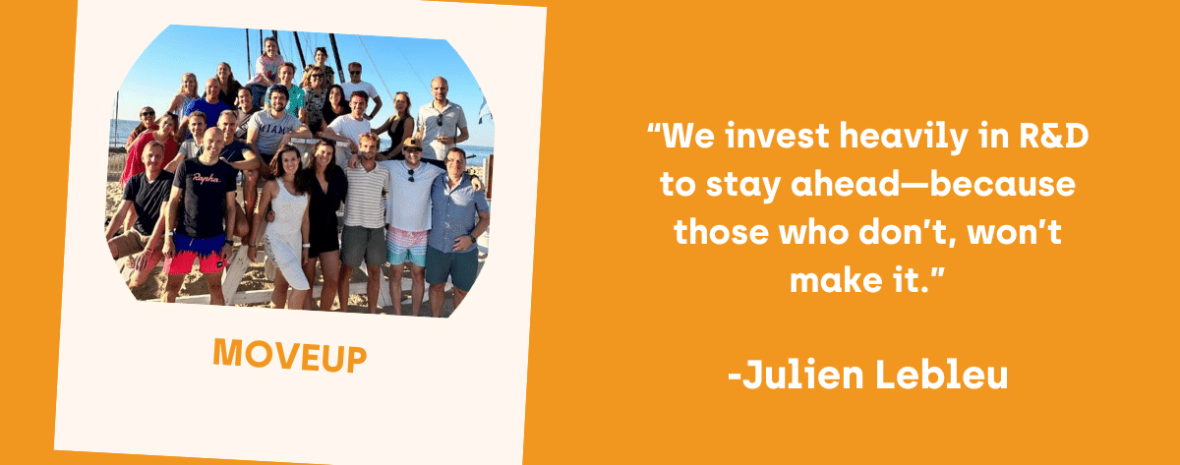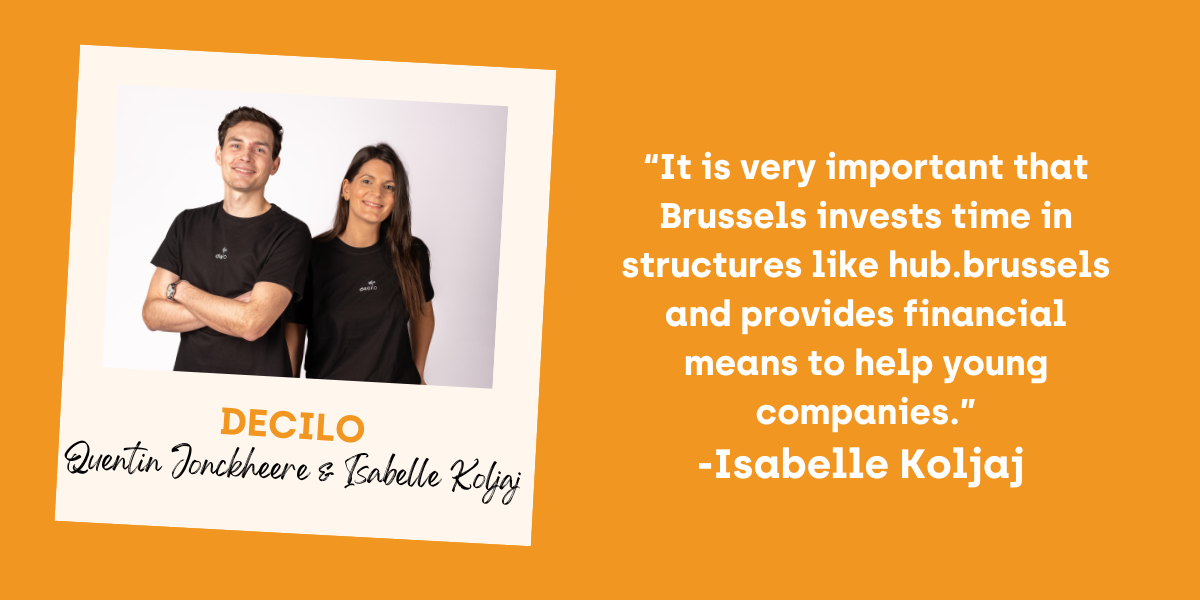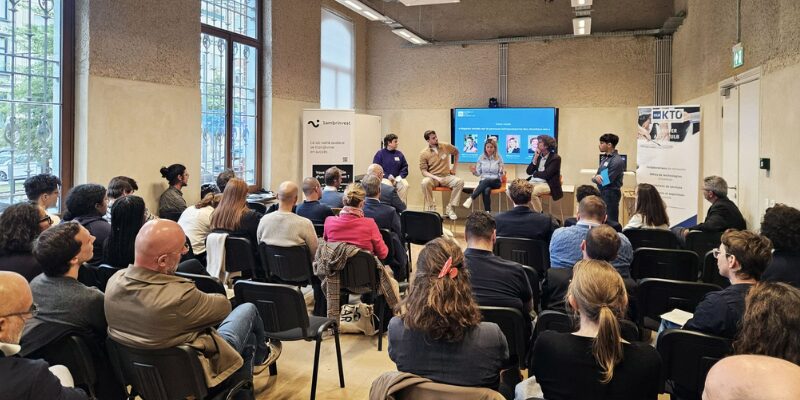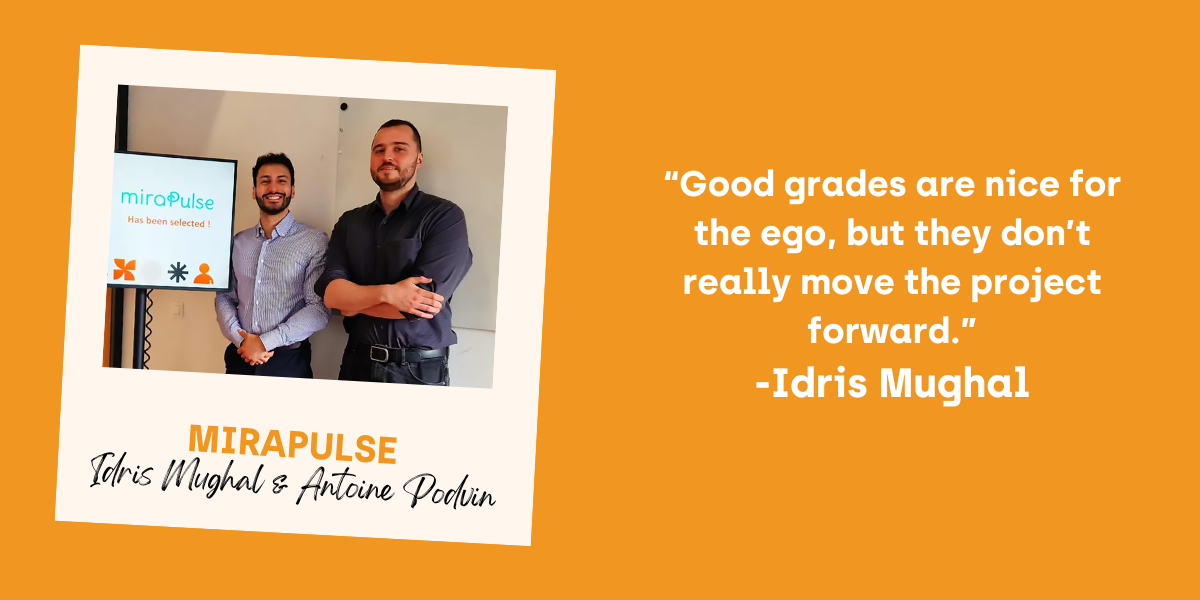MoveUP’s story began in 2016, initiated by a surgeon, two engineers, and a lawyer during their MBA at Vlerick Business School. What could have remained a fictional business project quickly turned into a success story.
“The orthopedic surgeon in the group wanted to better understand the variability in patient recovery after hip or knee replacement surgeries,” explains Julien Lebleu, physiotherapist and Clinical Innovation Lead at MoveUP. “He wanted to build a system to collect data that would help reduce this variability.”
Engaging patients
The main challenge was motivating patients to provide personal data via a mobile app. This is where physiotherapists came in—to offer advice on rehabilitation, pain management, and more, adding value and building patient trust. “We started with data collection, but healthcare professionals soon became involved,” says Julien. “This led to the adoption of telehealth, allowing patients to receive care at home, while doctors and physiotherapists collaborated on the same platform for better coordination.”
Public and private support
MoveUP’s solution caught the attention of public authorities as early as 2017-2018, within the framework of Belgium’s national e-health plan to integrate mobile health applications into the healthcare system. With support from Minister De Block’s office, the company launched a pilot project involving 200 patients across three hospitals. The results were excellent, leading to a rapid market launch and a request for reimbursement from the NIHDI in 2018. This resulted in a temporary reimbursement framework in Belgium from 2020 to 2022.
Patient-centered care
And patients are satisfied. “Our product is patient-centered,” says Julien. “We give them feedback on the data they input. After three weeks, we ask for their opinion and consult with care teams to improve our product. Even if we co-create with professionals, without patient satisfaction, the tool won’t survive.”
MoveUP’s structure reflects this focus: “Half of our team has a healthcare background,” Julien adds. “This allows us to tailor our offer to hospital needs. We don’t just offer software—we include significant service components like change management, which is greatly appreciated and, I believe, essential.”
Constant evolution
Although MoveUP launched with a bang, the company must constantly adapt. “In 2016, our product was cutting-edge,” Julien explains. “It came out just as health-related mobile apps were emerging. But today’s market is much more dynamic, with many competitors in Belgium.”
So, the company diversified. Geographically, MoveUP is now present in 13 European countries, with representatives in the U.S., Spain, Italy, and even India. It also broadened its medical scope: orthopedics, cardiology, oncology, hematology, diabetes, neurology, obesity care, and pulmonology. “We invest heavily in R&D,” says Julien. “Staying ahead is essential—those who don’t won’t last.”
Sector challenges
Although the company doubled its revenue last year, it has not yet reached profitability. “Hospitals have no money, and patients shouldn’t have to pay,” laments Julien. “We need to convince private insurers and the NIHDI to invest. Pharma and MedTech companies have the resources, marketing power, and physician networks. They should play a key role in bringing our solutions to doctors and patients.”
The value of the Brussels ecosystem
The company proudly identifies as Belgian and praises its Brussels base. “There’s a great concentration of talent, brains, and universities,” Julien notes. “We’re also working more and more with pharma and tech companies. Being based at Central Station is convenient when coming from Namur, Louvain-la-Neuve, or Ghent. And Brussels has strong international visibility—everyone knows it, it’s a real hub!”
MoveUP has also benefited from lifetech’s support. The team fondly remembers the MedTech Accelerator. “You can tell there’s a genuine ecosystem in Brussels that cares about startups and wants to help,” says Julien. “That’s a big challenge in healthcare. Thanks to lifetech, we’ve taken part in international missions, met companies facing the same challenges, joined valuable networking events, and launched R&D projects with universities.”
Looking ahead
MoveUP appears well-positioned for the future in a constantly evolving sector. “Spending on digital health is growing,” Julien concludes. “That’s good news for us and the entire market. But complexity is growing too. In the U.S., large companies have absorbed the smaller ones. Is that MoveUP’s fate? Maybe. But one thing is clear: our field will undergo consolidation. Our goal is to be a driving force in that shift. With our recent acquisition of a medical AI startup, we’re strengthening our innovation capabilities and positioning ourselves as a strategic partner for healthcare stakeholders.”




